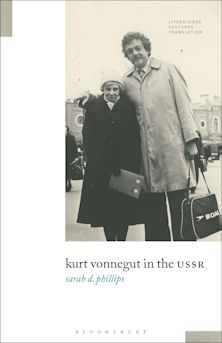- Home
- ACADEMIC
- Literary Studies
- Reception Studies
- The Reception of Robert Burns in Europe
The Reception of Robert Burns in Europe
You must sign in to add this item to your wishlist. Please sign in or create an account
Description
Robert Burns (1759 –1796), Scotland's national poet and pioneer of the Romantic Movement, has been hugely influential across Europe and indeed throughout the world. Burns has been translated seven times as often as Byron, with 21 Norwegian translations alone recorded since 1990; he was translated into German before the end of his short life, and was of key importance in the vernacular politics of central and Eastern Europe in the nineteenth century. This collection of essays by leading international scholars and translators traces the cultural impact of Burns' work across Europe and includes bibliographies of major translations of his work in each country covered, as well as a publication history and timeline of his reception on the continent.
Table of Contents
Elinor Shaffer
Acknowledgements
List of Contributors
Abbreviations
Timeline of the European Reception of Robert Burns, 1795–2012
Pauline Mackay
Introduction: 'The mair they talk, I'm kend the better': Burns and Europe
Murray Pittock
German
Lost in Translation: Robert Burns in Germany
Frauke Reitemeier
German-Language Reception of Robert Burns in Austria
Eleoma Bodammer
The Reception of Robert Burns in Switzerland
Silvia Mergenthal
French
From Bard to Boor: The Critical Reception of Robert Burns in France
Dominique Delmaire
Italian
'Compar'd to these, Italian trills are tame': A Century of Robert Burns in Italy, 1869–1972
Francesca Saggini
Spanish
Robert Burns and Spanish Letters
Andrew Monnickendam
Russian
The Reception of Robert Burns in Russia
Natalia Kaloh Vid
Ukrainian
The Reception of Robert Burns in Ukrainian Culture
Hanna Dyka
Hungarian
'His voice resonated for the longest time in our literature': Burns and 'popular poetry' in Nineteenth-century Hungary
Veronika Ruttkay
Czech
Czech Translations of Burns: Constructing National Identity?
Martin Procházka
Polish
The Reception of Robert Burns in Poland
Miroslawa Modrzewska
Slovene
Robert Burns's Reception in Slovenia
Valentina Bold
Norwegian
Burns in Norwegian: A Man of Opposition
Jahn Holljen Thon
Music
The Reception of Robert Burns in Music
Kirsteen McCue and Marjorie Rycroft
Bibliography
Index
Product details

| Published | 19 Jun 2014 |
|---|---|
| Format | Ebook (PDF) |
| Edition | 1st |
| Extent | 416 |
| ISBN | 9780567170125 |
| Imprint | Bloomsbury Academic |
| Series | The Reception of British and Irish Authors in Europe |
| Publisher | Bloomsbury Publishing |
About the contributors
Reviews
-
In her preface to this book, Elinor Shaffer (editor of the series in which the book appears) argues that translation histories show the complex interweaving of ideas, periods, and peoples and illuminate an author by refracting unexpected attributes in texts one takes for granted. The 14 critics assembled by Pittock (Univ. of Glasgow, Scotland)-among them Silvia Mergenthal, Francesca Saggini, Marjorie Rycroft, Natalia Kaloh Vid, and Frauke Reitemeier-bring to this volume a broad expanse of knowledge, location, and focus and in so doing weave a fascinating critical tapestry. Anchored by a timeline of translations (1798–2012), the volume tracks reception all over Europe and into music, revealing the unexpected at every turn. Burns's work contributed to the development of nationalism, picking up on the influence of Ossian. But at times it failed to connect or found a space (e.g., Spain) already occupied by Sir Walter Scott. In France, Burns's reputation soared and dived. Elsewhere (Germany and Switzerland), it engaged sporadically, according to the surge in ideas or familiarity with dialects. Russia claimed itself as the only country that understood him; in Austria, Burns's work was once restricted to “reliable citizens.” Burns, it seems, lives dangerously-and always interestingly-abroad. An excellent resource. Summing Up: Highly recommended. Graduate students, researchers, faculty.
C. McCracken-Flesher, in CHOICE


































